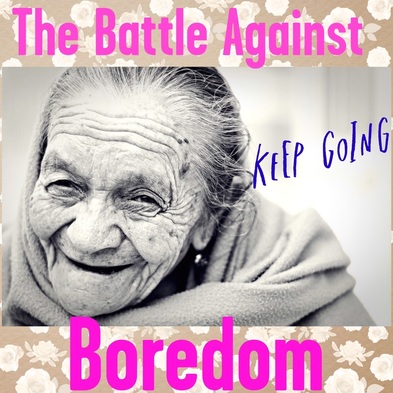Why WE Make an IMPACTMany older adults struggle with debility caused by injury or illness. This debility robs them of function and independence and often sets off a cascading cycle of decline. All too often in facilities, there is another type of decline that is far more insidious--and equally dangerous to health and wellbeing if not more so than the average injury.
This decline comes not from external events--at least not initially--but from internal processes. This is the battle against boredom. Many older adults entering their supposed “Golden-years” drift into doldrums caused by declining vision, strength, balance, and hearing. Even eating becomes less desirable as taste buds dull with age. These physiological changes are the catalyst for changes in behavior. Previously social elders self-impose their banishment from society, all because they can’t hear to communicate effectively. Formerly avid readers let their bookshelves become covered with dust because they simply can’t see the print. Gardeners become couch potatoes because declines in balance lead to frightening or injurious falls. All these changes cause droves of aging elders to become recluse, seldom leaving their rooms, chairs, and even beds. Sleep becomes the only respite from the sadness of lost function and loneliness of lost friends, family or spouses. Many older adults stop trying to make new friends after becoming tired of losing their peers to death, disease, or decline. These changes operate much like an epidemic, and a domino effect is easily seen. Some assisted living facilities feel like a ghost town with infinitely long and empty hallways with hundreds of rooms--doors all closed--and tiny recreation rooms sparsely populated by the very few who maintain a different outlook, or are privileged with exceptional health. It is into this landscape that WE the clinicians must enter; our disruptive smiles, optimism, and encouragement knocking off the rust of inactivity and slowly but surely turning a downward spiral around. It is our job(and privilege) to rekindle old interests and passions and reinvigorate the parched earth of decline with an ever-flowing spring of novel, adaptive, or formerly favored activities. We use our knowledge of the human body and medicine to remediate where possible and adapt when it is not. Many times, even the tiniest spark of interest in an activity can be turned into a raging fire of enthusiasm as the glint of interest in a senior’s eyes returns with a vengeance. There’s nothing like seeing joy in another person and even the occasional happy tear as they begin to believe what we incessantly drone on about, “you can, you can, you can, you can, you will!” It’s all about getting to know each client and discovering what they wish they could do and then helping them discover that they indeed CAN, and if we have any say in it, they WILL.
0 Comments
Leave a Reply. |
Archives
September 2016
Categories
All
|

 RSS Feed
RSS Feed